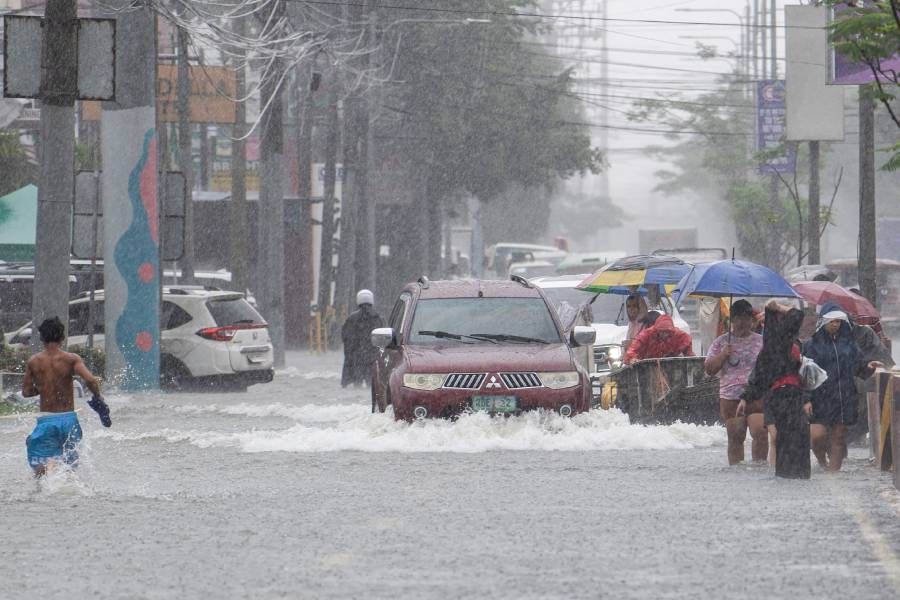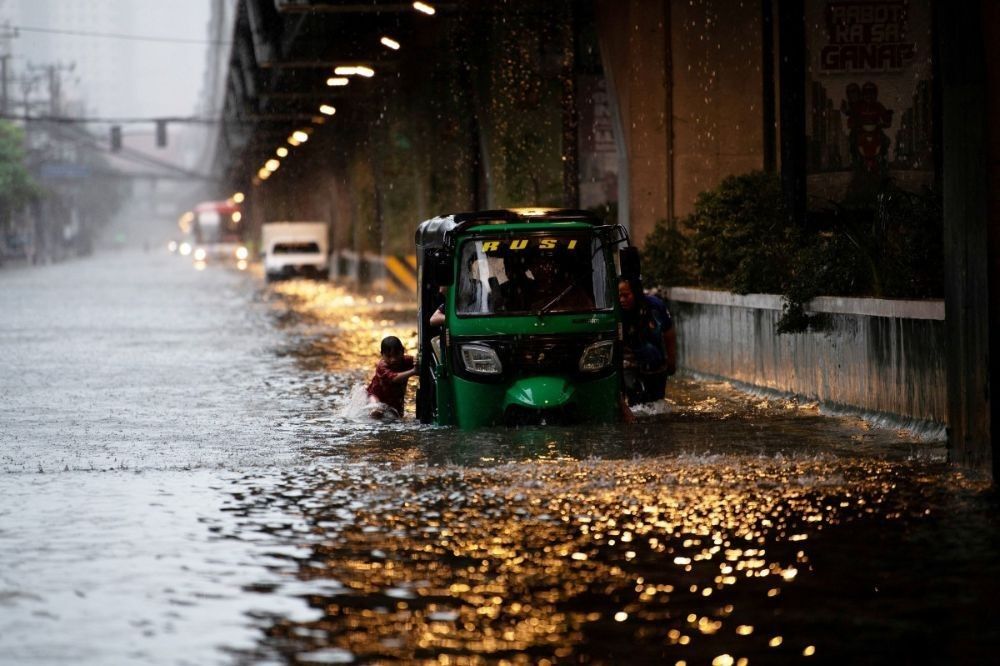
Upgrade to High-Speed Internet for only ₱1499/month!
Enjoy up to 100 Mbps fiber broadband, perfect for browsing, streaming, and gaming.
Visit Suniway.ph to learn
Motorists and commuters navigate floodwaters along España Boulevard in Manila following heavy rains on July 22, 2025.
The STAR / Edd Gumban
MANILA, Philippines — The government has allocated at least P360 million from the Ayuda sa Kapos ng Kita Program (AKAP) to provide relief to 36 congressional districts affected by Severe Tropical Storm Wipha (formerly Crising) and the southwest monsoon.
According to House Speaker Martin Romualdez (Leyte, 1st District), the Department of Social Welfare and Development (DSWD) will distribute P10 million in financial aid to each congressional district.
The funds will assist residents whose homes were flooded, families who have been displaced and others affected by Crising and torrential monsoon rains.
In a statement, Romualdez listed the following districts that will receive aid:
- Manila, 1st District
- Manila, 2nd District
- Manila, 3rd District
- Manila, 4th District
- Manila, 5th District
- Manila, 6th District
- Navotas, Lone District
- Makati, 1st District
- Makati, 2nd District
- Quezon City, 1st District
- Quezon City, 2nd District
- Quezon City, 3rd District
- Quezon City, 4th District
- Quezon City, 5th District
- Quezon City, 6th District
- Taguig, Lone District
- Pasay, Lone District
- Taguig-Pateros, Lone District
- Caloocan, 1st District
- Caloocan, 2nd District
- Caloocan, 3rd District
- Muntinlupa, Lone District
- Valenzuela, 1st District
- Valenzuela, 2nd District
- Mandaluyong, Lone District
- Parañaque, 1st District
- Parañaque, 2nd District
- Malabon, Lone District
- Marikina, 1st District
- Marikina, 2nd District
- Pasig, Lone District
- Las Piñas, Lone District
- San Juan, Lone District
- Palawan, 1st District
- Palawan, 2nd District
- Palawan, 3rd District
Apart from financial aid, relief packs have been prepared for distribution. Some House members have also mobilized their offices to serve hot meals to evacuees taking shelter in schools, covered courts and temporary facilities across Metro Manila.
“This is just the beginning of our coordinated disaster response. Malayo pa ang mararating ng tulong na ito at hindi pa ito ang huli. Ang importante, agad nating naramdaman ang pagtulong ng administrasyong Marcos,” Romualdez said in a statement.
(This is just the beginning of our coordinated disaster response. There’s still a long way to go, and this won’t be the last of the assistance. What’s important is that we immediately felt the Marcos administration’s support.)
He added that swift allocation of AKAP funds is crucial to respond effectively to weather disturbances, as delayed response and preparation can worsen disasters.
AKAP controversy
The P26.159-billion AKAP allocation in the 2025 national budget has become controversial. While designed to assist workers earning below minimum wage, the program faces a Supreme Court challenge over its constitutionality.
Petitioners argue AKAP functions as a “pork barrel” because it allegedly allows lawmakers to influence recipient selection. Pork barrel refers to discretionary funding that gives legislators control over fund distribution.
The DSWD, as the implementing agency, clarified in 2024 that AKAP beneficiaries are vetted by agency social workers, not government officials.
However, DSWD Secretary Rex Gatchalian said legislators and local officials can refer “potential aid recipients,” though they cannot dictate final selections.
Lawmakers defending the AKAP allocation contend that Congress is only fulfilling its oversight responsibilities over the fund's implementation and is not involved in actual program administration.
The government operates multiple financial assistance programs, with AKAP being one example. Another is the Assistance to Individuals in Crisis Situation (AICS), which is also implemented by the DSWD. AKAP has also been criticized for being a “duplication” of AICS.

 8 hours ago
2
8 hours ago
2



